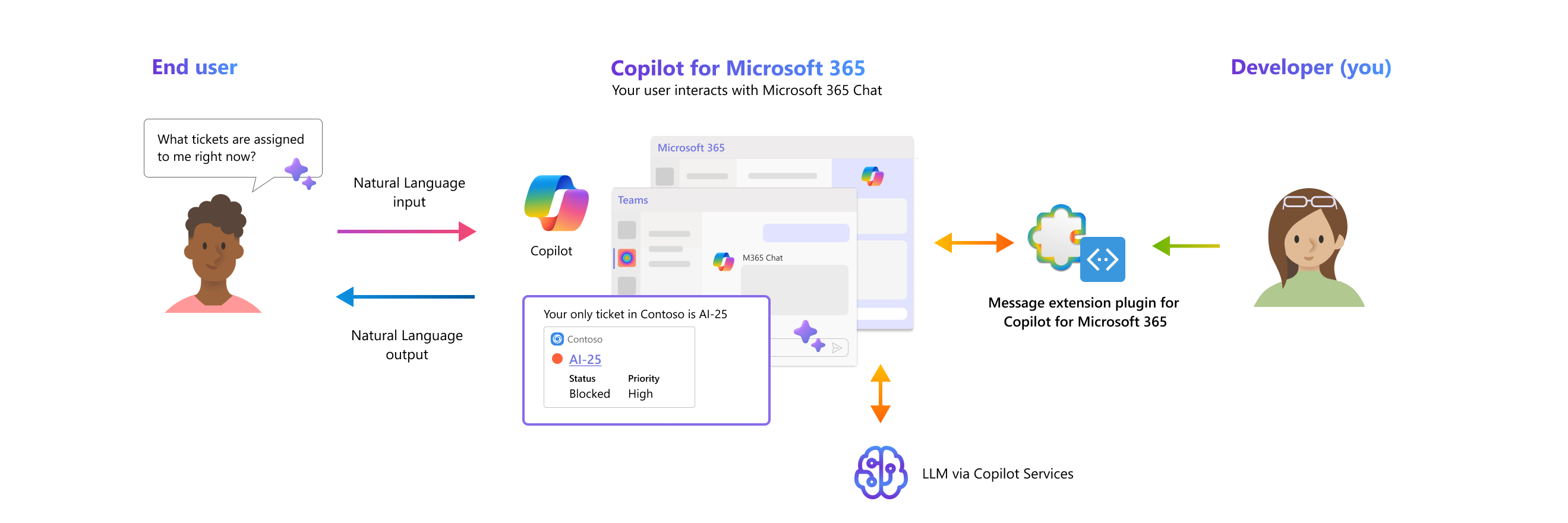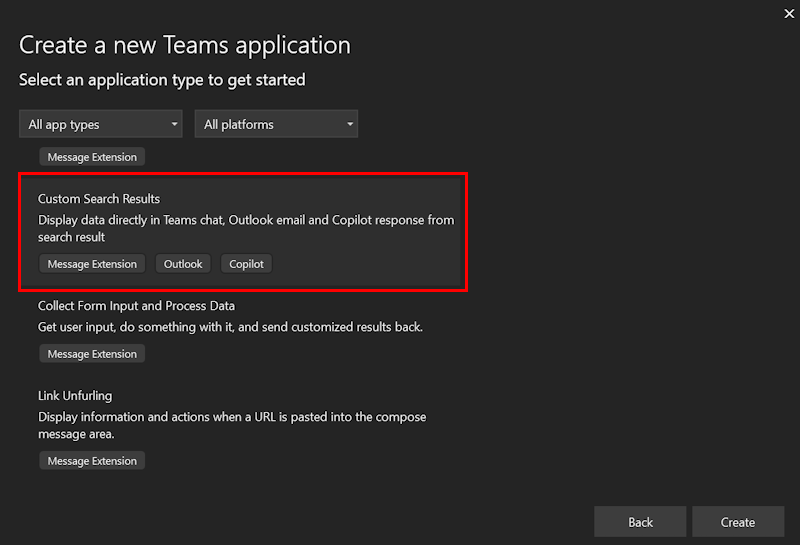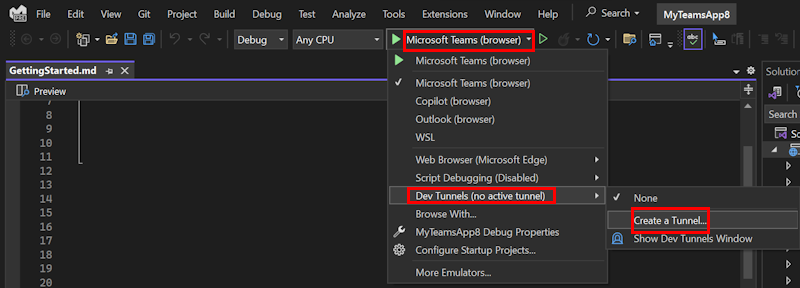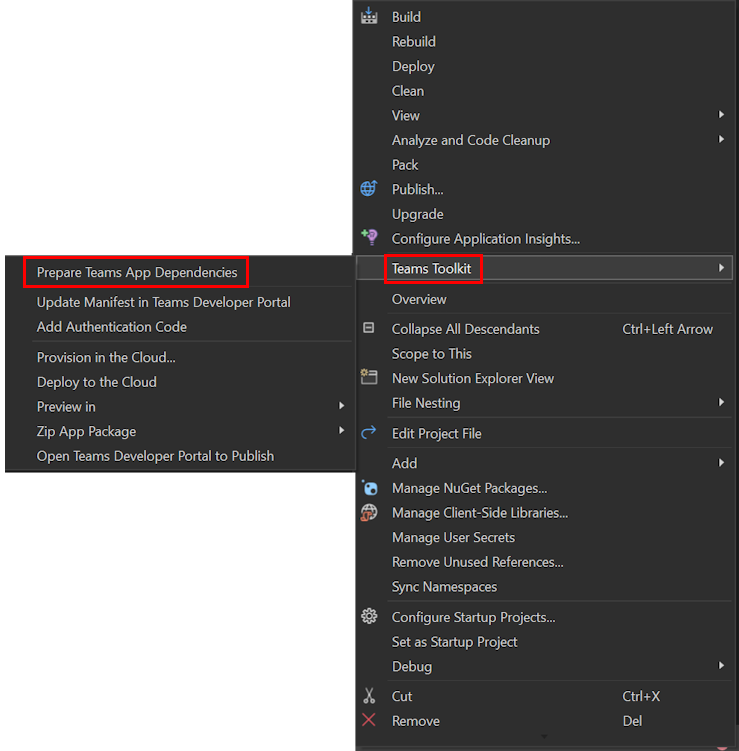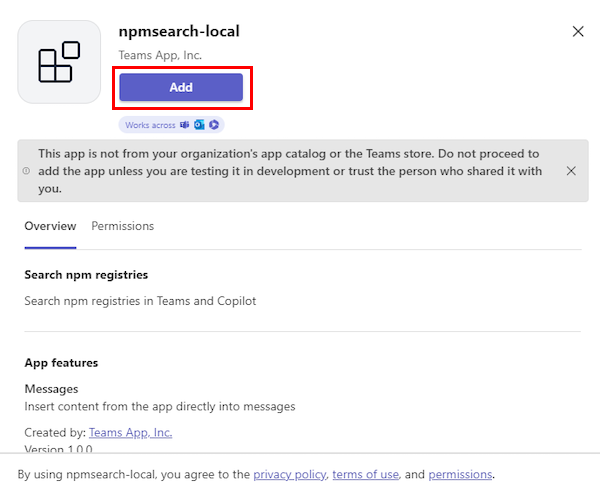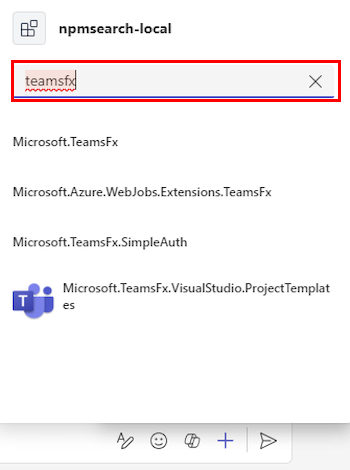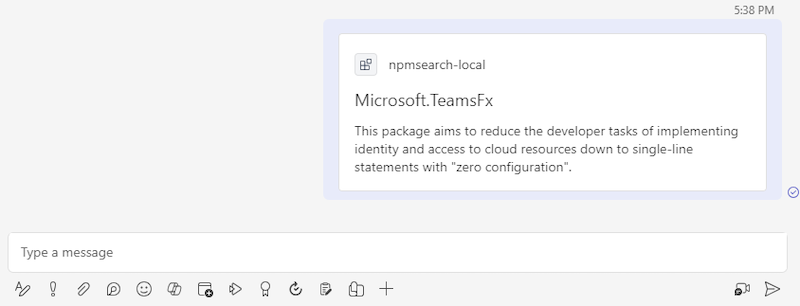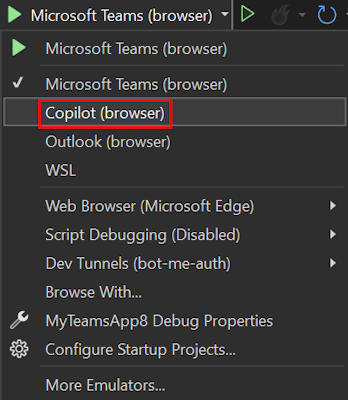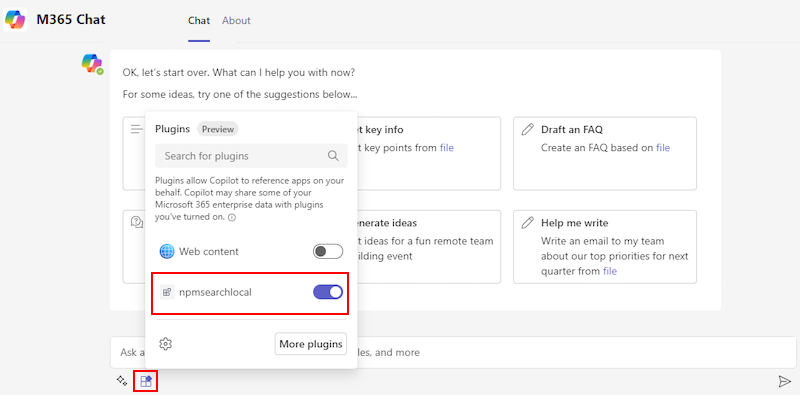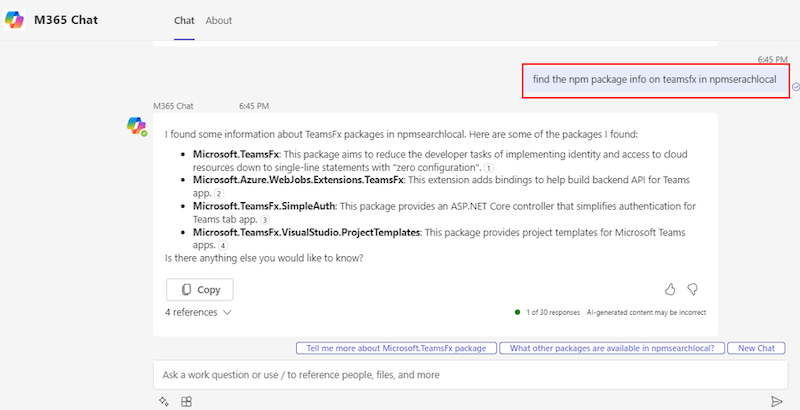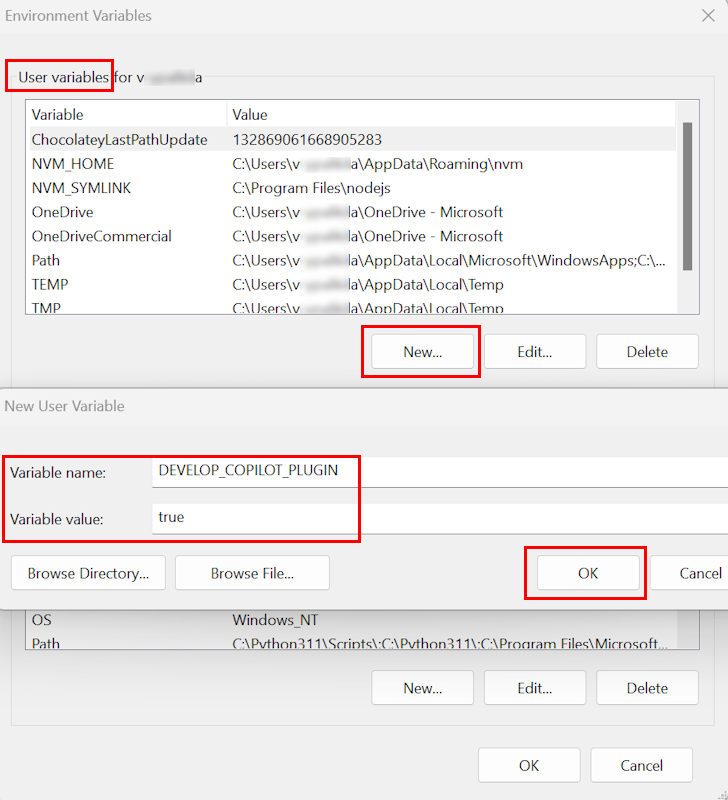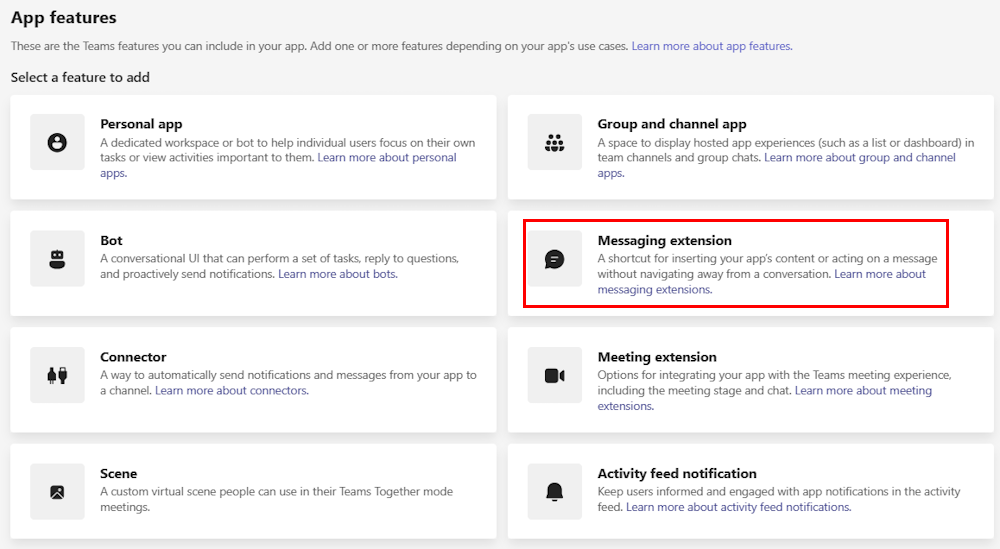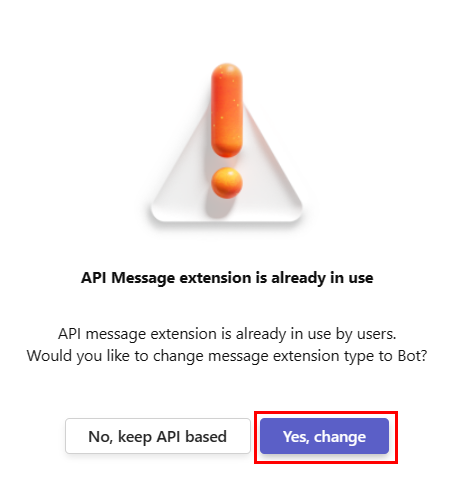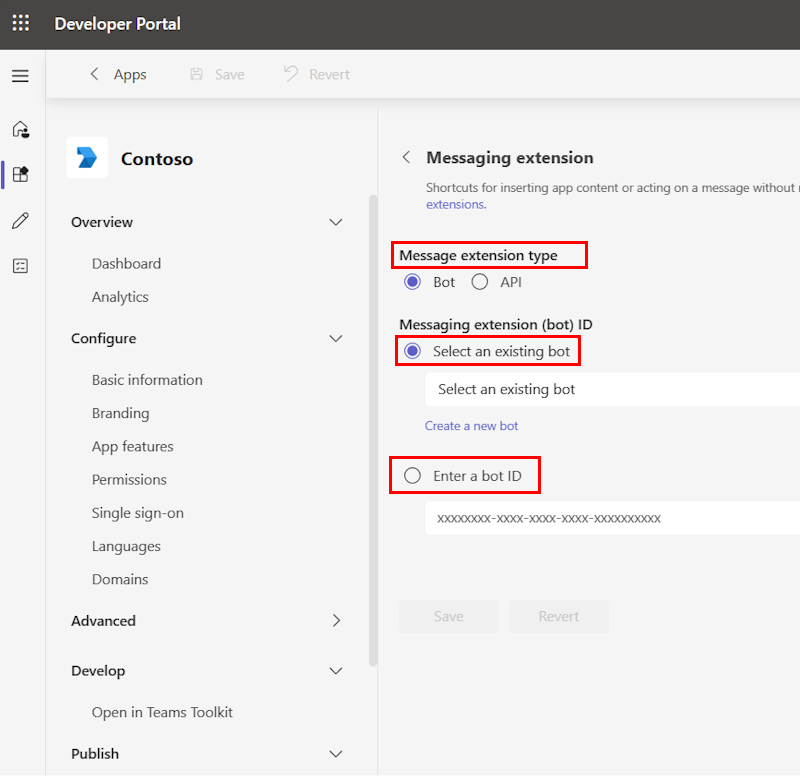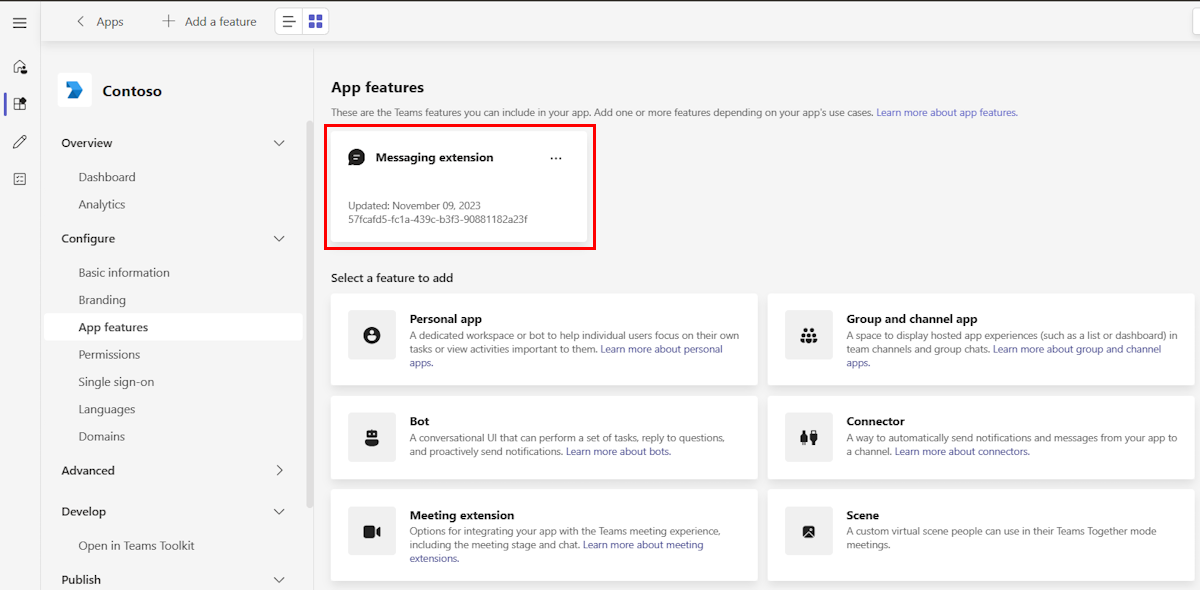Extend bot-based message extension as plugin for Copilot for Microsoft 365
Note
- Ensure that Copilot for Microsoft 365 is available for your organization. You have two ways to get a developer environment for Copilot:
- A sandbox Microsoft 365 tenant with Copilot (available in limited preview through TAP membership).
- An eligible Microsoft 365 or Office 365 production environment with a Copilot for Microsoft 365 license.
- Bot-based search message extension plugin is available in public developer preview.
- Only bot-based message extensions with search commands can be extended as plugins for Copilot for Microsoft 365.
Microsoft Copilot for Microsoft 365, powered by an advanced processing and orchestration engine, integrates Microsoft 365 apps, Microsoft Graph, and Large Language Models (LLMs) to transform your words into a potent productivity tool. Although Copilot for Microsoft 365 can utilize apps and data within the Microsoft 365 ecosystem, many users rely on various external tools and services for work management and collaboration. By extending your message extension as a plugin in Copilot for Microsoft 365, you can enable users to interact with third-party tools and services, therefore empowering them to achieve more with Copilot for Microsoft 365. You can achieve this extension by developing a plugin or connecting to an external data source.
See the video to learn more about extending Copilot for Microsoft 365 using Teams message extensions:
What is a plugin?
A plugin allows Copilot for Microsoft 365 to interact directly with third-party data, apps, and services, enhance its capabilities, and broaden its range of capabilities. Plugins allow Copilot for Microsoft 365 to:
- Fetch real-time information, such as the latest news coverage on a product launch.
- Retrieve knowledge-based information, such as a team’s design files in Figma.
Descriptions enhance the usability and effectiveness of a message extension plugin. The following description offer a clear and concise summary of the app’s features:
- App description: App description helps improve your app discoverability in the Teams Store.
- Command description: Command description maps user intent and utterance to search command inside a plugin and must be built based on the analysis of the user intent and keywords.
- Parameter description: Parameter description explains the requirements of the system in a natural language with output format.
- Semantic description: Semantic description helps Copilot for Microsoft 365 generate content by providing a conceptual understanding of the plugin's capabilities and scenarios where it can help achieve user goals and match user’s intent with the plugin's capabilities.
For more information, see define descriptions.
All bot-based search message extensions are eligible for plugin support, subject to validation to ensure the plugin meets quality, security, privacy, and usefulness expectations. You can create a bot-based search message extension using Teams Toolkit for Visual Studio Code, Visual Studio, Teams Toolkit command line interface (CLI), or Developer Portal for Teams and extend the message extension to function as a plugin in Copilot for Microsoft 365.
Prerequisites
Before you get started, ensure that you're familiar with the following standards and guidelines for building message extension plugins for Copilot for Microsoft 365:
Standards for compliance, performance, security, and user experience outlined in Teams Store validation guidelines.
Guidelines to create or upgrade a message extension plugin for Copilot for Microsoft 365.
Create bot-based message extension
Important
Plugins for Microsoft Copilot for Microsoft 365 are in preview and only work in Microsoft 365 Chat in Microsoft Teams.
Let's create a bot-based search message extension that can search npm registries in Teams and Copilot and share results through the compose message area of the Microsoft Teams client.
Before you get started, ensure that you install the following tools to build and deploy your message extension:
- Install the latest Teams Toolkit prerelease version.
- Ensure that the Develop Copilot Plugin feature flag is enabled. To enable the feature flag, follow these steps:
- Open Visual Studio Code.
- Go to Manage > Settings.
- Enter Teams Toolkit in the Search settings search box.
- Under Extensions, select the Fx-extension: Develop Copilot Plugin checkbox.
To create a bot-based search message extension plugin using Visual Studio Code, follow these steps:
Open Visual Studio Code.
From the left pane, select Teams Toolkit.
Select Create a New App.
Select Message Extension.
Select Custom Search Results.
Select Start with a Bot.
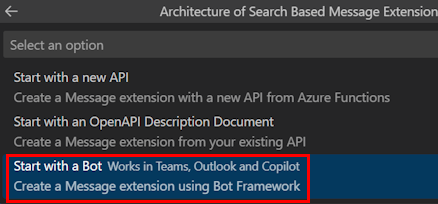
Select a programming language.
Select Default folder.
Enter the name of your app and select Enter. Teams Toolkit scaffolds your app and creates a message extension.
To run your message extension in Teams, follow these steps:
From the left pane, select Teams Toolkit.
Under ACCOUNTS, perform the following steps:
Select Sign in to Microsoft 365 and enter your Microsoft 365 credentials.
Select Sign in to Azure and enter your Azure credentials.
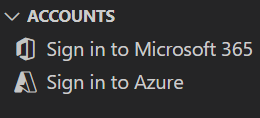
From the left pane, select Run and Debug (Ctrl+Shift+D).
Select Debug in Teams (Edge) or Debug in Teams (Chrome). Teams Toolkit launches your app in Teams using a web browser.
Select Add. The app is installed on Teams.
Go to a chat and select Actions and apps.
From the message extension fly-out menu, enter the name of your message extension in the search box.
Select your message extension and enter your search query.
Select a product from the list. Teams unfurls the product as an Adaptive Card in the message compose area.
Select Send.
Trigger message extension in Copilot for Microsoft 365
To trigger the message extension as plugin in Copilot for Microsoft 365 in Teams, follow these steps:
Select Apps.
Search for Copilot and open the Copilot for Microsoft 365 app.
Select Plugins.
From the list of plugins, turn on the toggle for your message extension.
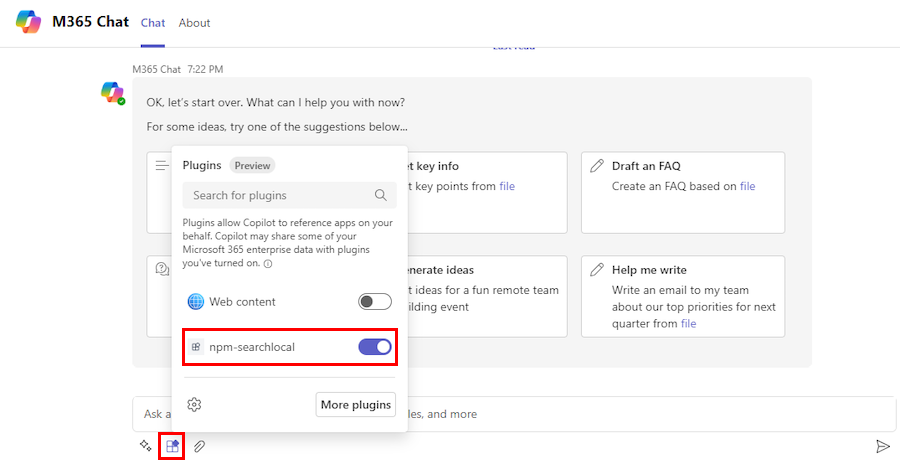
From the message compose area, send a message to Copilot for Microsoft 365 to search for npm package information in Teams and Copilot. For example, find the npm package info on teamsfx-react in npm-searchlocal.
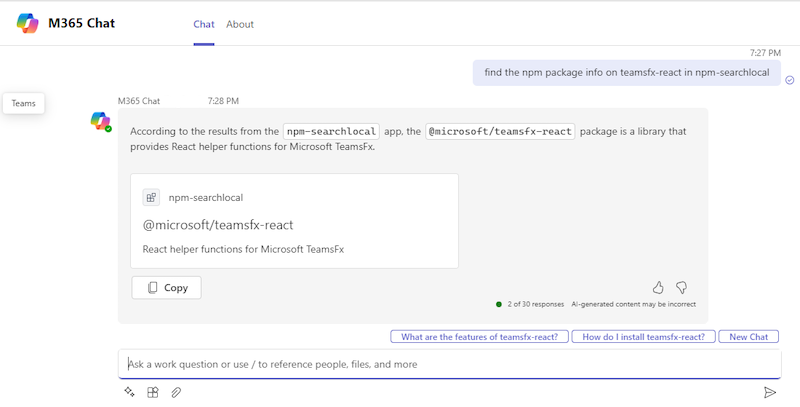
Note
This prompt might not always make Copilot for Microsoft 365 include a response from your message extension. If it happens, try some other prompts or leave feedback to us by downvoting the Copilot for Microsoft 365 response and leave a message.
For more on testing your plugin in Copilot for Microsoft 365, see Debugging plugin selection.
Enable message extension as a plugin for Copilot for meetings
Ensure that you've created a bot-based message extension and extended it as a plugin for Copilot for Microsoft 365. Before you get started, We recommend you to follow the guidelines listed in Copilot for Microsoft 365 extension guidelines to extend your plugin for Copilot for meetings.
To enable message extension as a plugin for Copilot for Teams meetings, follow these steps:
Go to a Teams meeting.
Select Join.
In the meeting window, select Copilot.
Select Start transcription.

Select the Spoken language and select Confirm. The Copilot for Teams pane appears.
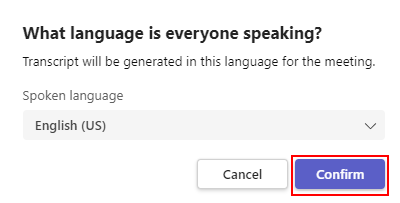
In the Copilot for Teams pane, at the bottom-right corner, select the Copilot Plugin Button.
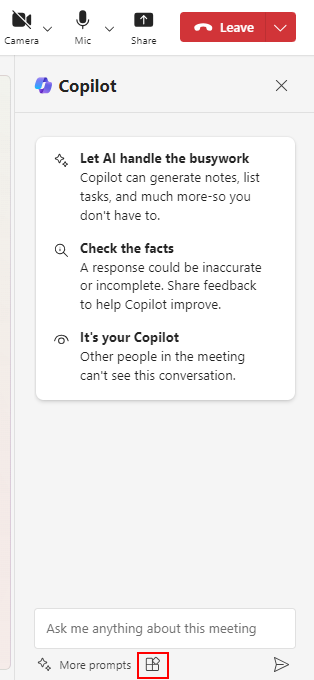
Search for your plugin and turn on the toggle for your plugin.
From the compose area, select More prompts to send a static prompt or you can type your own prompt and select Send.
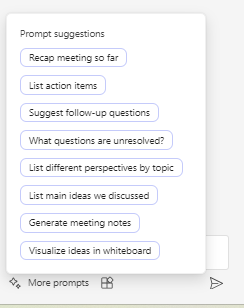
Meeting Copilot helps your meetings to be better and more productive. You can make meetings more interactive, which helps users by giving them a smoother and more interesting experience.
Step-by-step guide
Follow the step-by-step guide to build a bot-based search message extension plugin for Copilot for Microsoft 365.
See also
Platform Docs
Feedback
Coming soon: Throughout 2024 we will be phasing out GitHub Issues as the feedback mechanism for content and replacing it with a new feedback system. For more information see: https://aka.ms/ContentUserFeedback.
Submit and view feedback for
